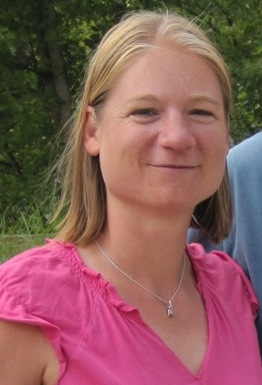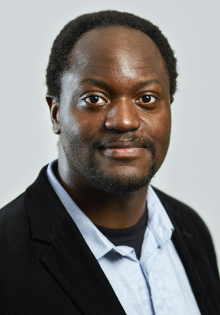Diana Maynard
Integrating human expert knowledge and NLP tools for real-world applications

Abstract. Traditionally, there has been a disconnect between custom-built applications used to solve real-world information extraction problems in industry, and automated learning-based approaches developed in academia. Automated sentiment analysis and misinformation detection systems, for example, are often developed around publicly available datasets, with models being constantly improved based on competitive challenges. However, despite approaches such as transfer-based learning, adapting these to more customised solutions where the task and data may be slightly different, and where training data may be largely unavailable, is still hugely problematic, with the result that many systems are typically still custom-built using expert hand-crafted knowledge, and do not scale. In the legal domain, a traditional slow adopter of technology, black box machine learning-based systems are simply too untrustworthy to be widely used. In industrial settings, the fine-grained highly specialised knowledge of human experts is still critical, and it is not obvious how to integrate this into automated classification systems. In this talk, we examine how to combine this expert human knowledge with automated technologies from NLP and deep learning, in order to scale the tools to larger amounts of data and to perform more complex analyses.
Diana Maynard is a research fellow at the University of Sheffield, UK. She was born in Chertsey, Surrey, and spent her childhood in Surrey, Hampshire, Wiltshire and North Yorkshire. She acquired a BSc in Computational Linguistics and French from UMIST in 1995, an MSc in Cognitive Science from the University of Manchester in 1996, and a PhD from Manchester Metropolitan University in automatic term recognition in 2000. Her main interests are in information extraction, opinion mining, social media analysis, terminology and semantic web technologies. Since 2000 she has worked in the GATE team, where she leads the development of Sheffield’s open-source multilingual Information Extraction tools, and has led research teams on a number of UK and EU projects. She is chair of the annual GATE training course and leads the GATE consultancy on IE and opinion mining. She has published extensively, organised a number of national and international conferences, workshops and tutorials, and has given a number of invited talks and keynote speeches.
Axel-Cyrille Ngonga Ngomo
Fact Checking and Knowledge Graphs

Abstract. Improving the completeness and correctness of knowledge graphs is vital to further their use in academia and industry. In this keynote, we focus on the correctness of knowledge graphs. We begin by elucidating some of the fundamentals of fact checking based on the classical fact checking task on text. We then address the two main families of fact checking for knowledge graphs, i.e., approaches bases on textual resources and approaches focused on knowledge graphs alone. We then present possible applications of fact checking. The keynote is concluded by a short overview of challenges related to fact checking which are discussed in some of the current literature.
Axel Ngonga studied Computer Science and Physics at Leipzig University. He completed his PhD on the extraction of knowledge graphs from text corpora in 2009. His habilitation on data integration for the Web of Data was completed in 2018. He is now a full professor at Paderborn University, Germany, where he leads the DICE research group. In his research, Axel develops full-stack solutions for knowledge graphs at scale ranging from knowledge extraction from legacy data to scalable machine learning approaches. The evaluation of the veracity of facts in knowledge graphs is of particular interest to his team as a precursor to explainable and responsible AI solutions.
Toby Walsh
Preferences: Representing, Reasoning & Ethics

Abstract. There are many settings where we want to represent and reason with user’s preferences. In this talk, I will outline some of the key technical challenges in representing and reasoning about preferences, as well as the many ethical minefields to avoid.
Toby Walsh is a leading researcher in Artificial Intelligence. He is Scientia Professor of Artificial Intelligence at UNSW and Data61. He was named by the Australian newspaper as a “rock star” of Australia’s digital revolution. He has been elected a fellow of the Australian Academy of Science, and has won the prestigious Humboldt research award as well as the NSW Premier’s Prize for Excellence in Engineering and ICT. He has held research positions in Australia, England, Scotland, France, Germany, Italy, Ireland and Sweden.
He regularly appears in the media talking about the impact of AI and robotics. He is passionate that limits are placed on AI to ensure the public good. In the last two years, he has appeared in TV and the radio on the ABC, BBC, Channel 7, Channel 9, Channel 10, CCTV, CNN, DW, NPR, RT, SBS, and VOA, as well as on numerous radio stations. He also writes frequently for print and online media. His work has appeared in the New Scientist, American Scientist, Le Scienze, Cosmos, the Conversation and “The Best Writing in Mathematics”. His twitter account has been voted one of the top ten to follow to keep abreast of developments in AI. He often gives talks at public and trade events like CeBIT, the World Knowledge Forum, TEDx, and writers festivals in Jaipur, Bhutan, and around Australia. He has played a leading role at the UN and elsewhere on the campaign to ban lethal autonomous weapons (aka “killer robots”).